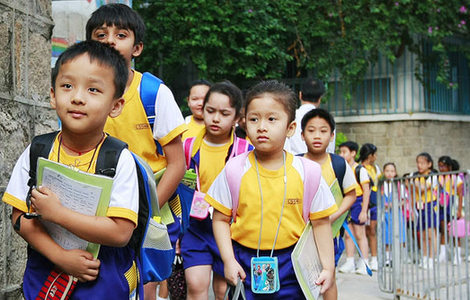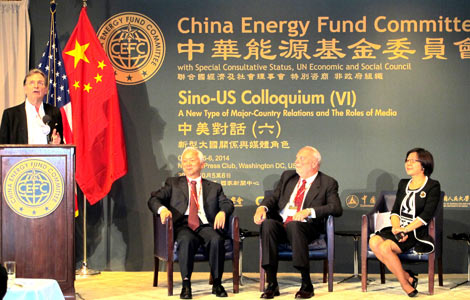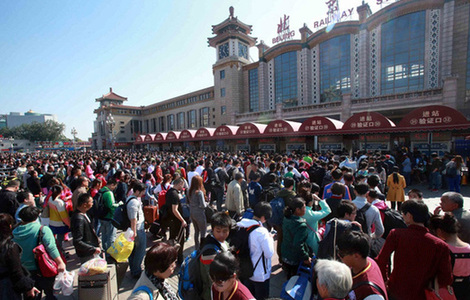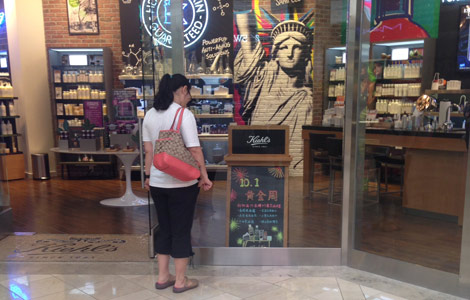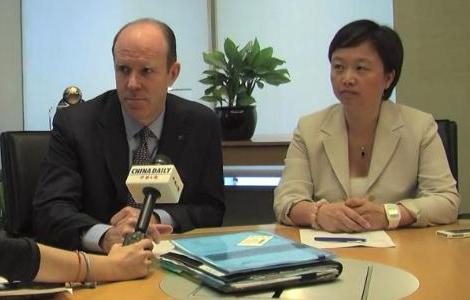China's role grows in Gates Foundation tech push
Updated: 2014-10-09 13:00
By Shan Juan in Seattle(China Daily USA)
|
||||||||
An increasing number of Chinese businesses and academic institutions have been joining the Grand Challenges initiative set up by the Bill & Melinda Gates Foundation, which aims to help the poor worldwide through science and technology innovations.
As of 2014, more than 1,600 grants have been awarded in 80 countries. China is among the 60 countries where more than 107 grants of a subsidiary initiative, the Grand Challenges Explorations, have been awarded, according to the foundation.
"Starting this program was one of the first really big things our foundation did to advance innovation on behalf of the poor - and it's great to be joined by partners from all over the world who have been involved in this with us," Bill Gates said on Tuesday at the Grand Challenges 10th anniversary meeting in Seattle.
According to Gates, several innovations are now on the path to becoming important life-saving tools, such as using optic barriers - light waves - to stop mosquitoes from finding humans to bite and thus spreading malaria and dengue fever.
Ustar Biotechnologies, in Hangzhou, Zhejiang province, received a grant in October 2013 to develop and market an innovative, portable, low-cost and rapid nucleic acid test for HIV and TB.
You Qimin, chairman and CEO of Ustar, said the private company would receive a $5.27 million grant and is obliged to make the first shipment, targeting mainly developing countries in Africa, within 36 months. The patent for the test is owned by the company.
According to You, Ustar's HIV testing reagent would cost $5. Current mainstream products cost $20 for each testing.
The Gates Foundation grant means much more than just financial support for You.
"Nowadays, China does not lack investment money domestically, but becoming a beneficiary of the Gates Foundation has brought us unprecedented access to an international platform and unexpected opportunities," he told China Daily.
"That status improves our reputation as well, both at home and abroad," he added.
According to You, the Clinton Foundation is among those approaching Ustar for further cooperation possibilities.
"That was an unexpected development as they offered to help us with future product distribution in Africa," he said.
Other agencies have come forward to help them with the application for World Health Organization prequalification, which guarantees the product is up to international standards for quality, safety and effectiveness.
"That would serve as a guideline for producing world-class products and boost our reputation, particularly in international markets," he said.
To date, China has only one Japanese encephalitis vaccine prequalified by the WHO.
Zuo Lian, chief scientific officer of Regenex Pharmaceuticals in Guangzhou, said the Grand Challenges Explorations grant of $100,000 gave Regenex a huge boost to develop, produce and market what it claims is the world's thinnest condom, which matches the long-held mission of the Gates Foundation to curb HIV.
The company is now considering applying for a second-phase grant of $1 million for follow-up research and development and future production, Zuo said.
"R&D investment to improve condoms has been scarce, and the grant boosts our confidence," she said.
shanjuan@chinadaily.com.cn
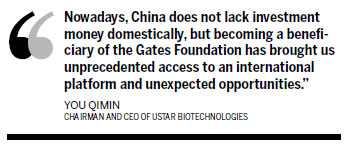
(China Daily USA 10/09/2014 page3)
Most Viewed
Editor's Picks

|

|

|

|

|

|
Today's Top News
IMF: Shadow banking filling gaps
China's status prominent at 'Big Four' firm Ernst & Young
Li arrives in Germany, first leg of Europe trip
China's economy surpasses US
China's role grows in Gates Foundation tech push
US hospital to offer resources for new facility in Guangdong
China's role grows in Gates Foundation
US Ebola patient dies
US Weekly

|

|

